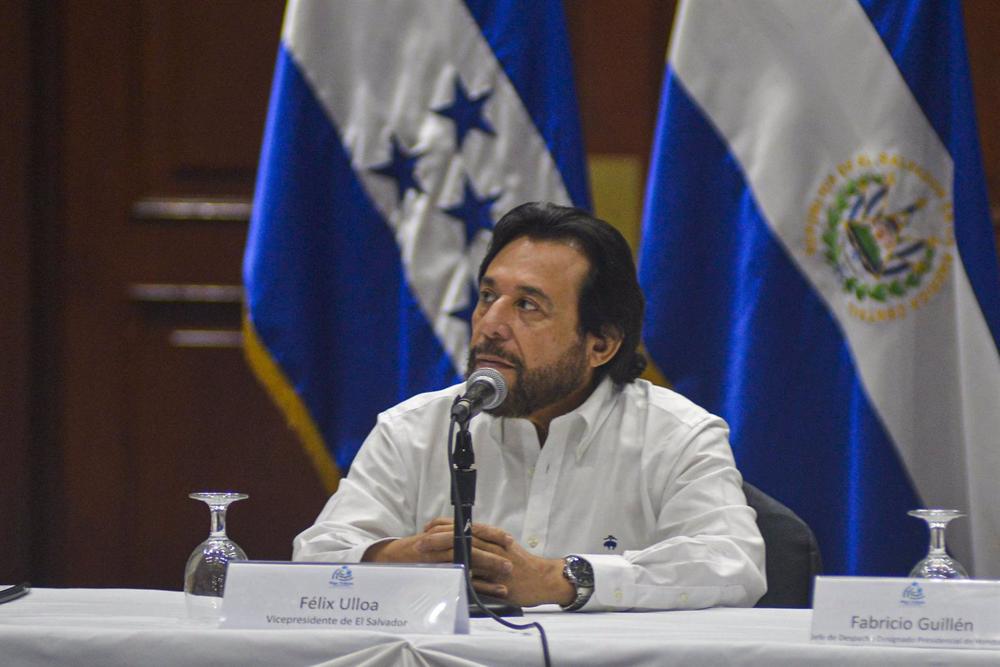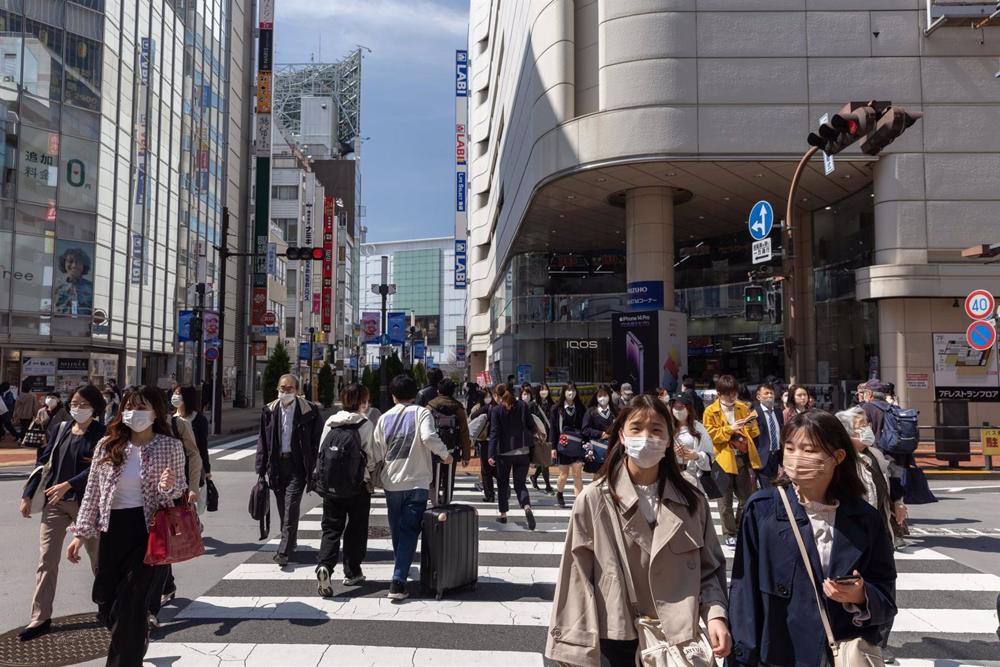
The Vice President of El Salvador, Felix Ulloa, defended on Monday the work of the government of President Nayib Bukele against gangs as a «just war» and called for an «update» of the Human Rights treaties since the new challenges and enemies of the 21st century are different.
«It was necessary to confront the phenomenon at its roots, no government in the thirty preceding years (…) had made a serious effort to combat this scourge. On the contrary, tolerance and complicity, in some cases, had allowed these groups not only to grow, expand and strengthen, but also to dispute the sovereignty of the State», he said.
Ulloa blamed the two parties that have been governing El Salvador since the end of the civil war — ARENA and the Farabundo Marti National Liberation Front (FMLN) — for leaving them a failed state that they have had to face with the aggravation of other unexpected crises, such as the one brought on by the coronavirus pandemic.
«Both had come to the conviction that in order to carry out their political work they had to enter into some kind of arrangement with these criminal groups,» said the Salvadoran vice president during an event held this Monday by the New Economy Forum in Madrid.
«The war against the gangs is a just war, it is the right of a state to defend its population,» emphasized Ulloa, who cited the sole objective of peace as one of the basic principles that would justify this campaign launched more than half a year ago by President Bukele.
«The capture of more than 56,000 gang members has been done without bloodshed. Now, in more than seven months of the state of exception, there have been no more than 60 deaths, when there could have been tens of thousands in this confrontation», thanks, he said, «to the proportional use of force that the State has made».
In this sense, Vice President Ulloa pointed out that the criticisms coming from the media and international human rights organizations about the violations that are being committed are directed by the opposition and other interest groups that preferred to look the other way when the gangs were killing more than thirty people every day.
Ulloa has accused some of these organizations of «repeating» what can be read in «the opposition press», whose reports and reports are being prepared by these «human rights groups linked either to the FMLN or to ARENA».
«See and come ‘in situ’ what is happening,» Ulloa encouraged when questioned about the situation in Salvadoran prisons. «There was a kind of cry of alarm because 52 people died in the prisons (…) It is the responsibility of the State, of course, but the average number of deaths in previous governments was 150 a year. None of these groups raised their voices,» he justified.
The Salvadoran president also defended the need to «update» the Human Rights treaties, since at present they are still working with the 1948 declaration. «We are in the 21st century and the wars and the enemies, the terrorists, are different».
CRYPTO-CURRENCIES, A «LONG TERM» BET
In another order of things, Ulloa also wanted to highlight the «pioneering» role of El Salvador regarding the use of cryptocurrencies as legal tender and has denied those who claim that the State has had millionaire losses after the fall in the value of this type of digital currencies.
«There are some visions, sometimes erratic, sometimes incomplete, such as saying that El Salvador lost 150 million dollars for the investment we made. We have not lost a single cent because although we bought at a certain price that is higher than the bitcoin has now, it has not been lost because it has not been sold. The investment is there,» he explained.
«It is a long-term investment, a kind of reserve that El Salvador has. The only sale that was made was at a time when it was very favorable to do so and with the profits obtained a pet hospital was built where you pay with bitcoin,» he said.
Ulloa has highlighted that even when the value of these cryptocurrencies was at its lowest, President Bukele continued buying because they are waiting for it to rise again. «The world is going towards these digital currencies,» he says, assuring that many states have already asked the Salvadoran government for advice because of its experience in this field.
Ulloa has also confirmed that he will be the one to assume the presidency for six months, as established by the Constitution, in case Bukele resigns from office in order to run for the 2024 elections and thus aspire to a third term.
In view of the possibility that the ‘pink tide’ that has been established in the rest of the region arrives to the country, Ulloa has valued that there were «more disappointments than satisfactions» after the Latin American left came to power in previous years and that in the Salvadoran case, Bukele has always run away from labels.
Ulloa said that the Salvadoran president «is not attached to any ideology as we understand ideologies» and that in his case «Bukele is not a man of ideologies, he is a man of ideas and ideas are what is driving this government beyond any label».






